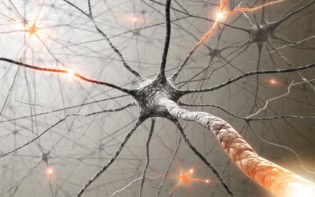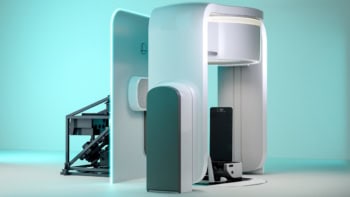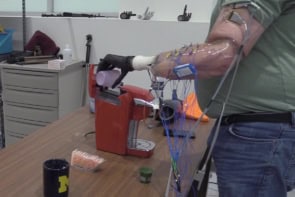
Cancer Research UK is investing £14 million to create a world-leading hub for cancer biotherapeutics research and treatment. The new City of London Centre brings together researchers from UCL, King’s College London, Queen Mary University of London and the Francis Crick Institute.
“The unique research focus of the Cancer Research UK City of London Centre will lay the foundation for the future of precision medicine, where existing treatments are combined with, or even replaced entirely by the latest biological therapies, with the hope of achieving lasting cures for more cancer patients,” says Iain Foulkes, Cancer Research UK’s executive director of research and innovation.
Biotherapeutics include any type of treatment that is produced by, involves or manipulates living cells. Such therapies are based on biological processes in cells, which can be engineered to help fight cancer. Examples include therapeutic antibodies, cell-based therapies, vaccines and gene therapies. Immunotherapy, for instance, harnesses the body’s own immune system to eliminate cancer cells and has transformed treatment of some types of cancer.
The research includes three programmes. Programme 1 will focus on developing new biological therapies. One priority here is analysing the tumour microenvironment to understand how the patient’s immune system interacts with cancer cells. Programme 2 will look at combining biotherapeutics with other methods to maximize the effects of treatment. Finally, programme 3 will focus on the evolution of cancer and how targeted biotherapies can be used to overcome rapid changes in tumour genetics.
“There have already been huge advances in biotherapeutics and there’s enormous potential to transform how we approach the hardest to treat cancers like brain tumours and lung cancer,” says Tariq Enver, centre lead at UCL. “Our ambition is for the Centre to stimulate further economic activity in biotechnology in London. London’s hospitals will also become flagship centres for treating patients with these new biological therapies, setting the standard for healthcare providers all over the world.”
Cancer patients from large parts of London, including some of the most deprived areas of the city, will have the opportunity to take part in pioneering research as part of their treatment.
“We believe that, in the future, the biotherapeutics field will transform cancer care,” adds Charles Swanton, Cancer Research UK’s chief clinician. “However, there are several research challenges still to tackle. We need to understand why some patients respond to these new treatments while others don’t, and how to identify which patients might experience harmful side effects. Most importantly, we need to optimize their activity to offer more patients access to these therapies who may benefit.”
“We now know more about the genetic diversity within tumours, how they evolve, and the body’s immune response to cancer, than ever before,” Swanton points out. “There’s a huge opportunity to use this knowledge to develop novel biological therapies that combat tumour evolution and to inform how best to use them in combination with other cancer treatments.”
The City of London Centre will gather expertise from each partner institution, including specialists in imaging, clinical trials and tumour evolution. Research will span all cancer types, including a focus on childhood cancers, where researchers hope to build on recent progress treating children with immunotherapies.
The centre will also provide multiple new opportunities for collaboration and training. This is the first time that these leading London institutions have partnered to tackle cancer on such a large scale.
“Cancer won’t be cured by a biologist or a clinician alone,” says Enver. “We need physicists, chemists, engineers and mathematicians — researchers from many different disciplines — to come together to tackle the disease in new and innovative ways. The Cancer Research UK City of London Centre will be a catalyst for this scientific collaboration.”



